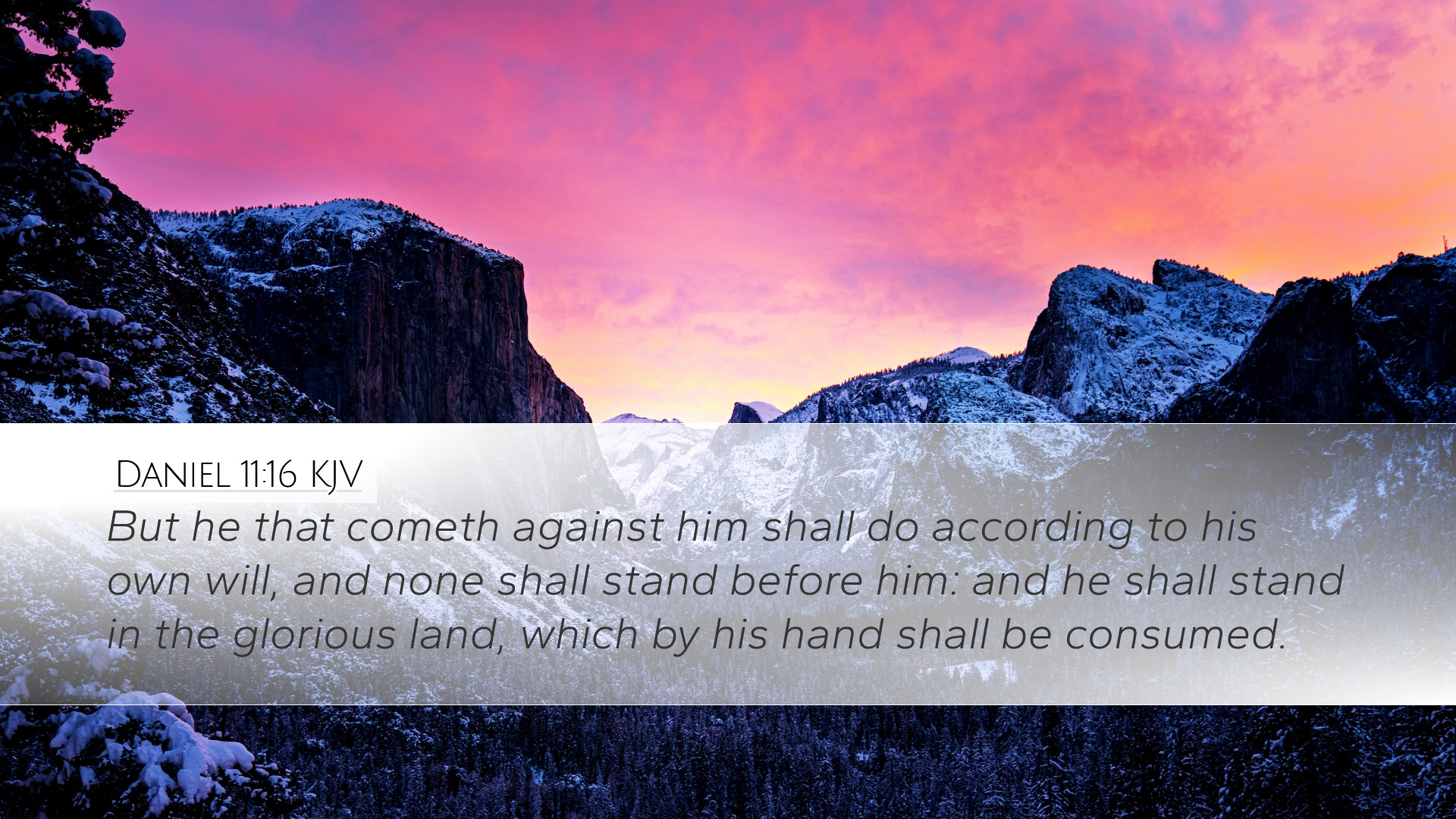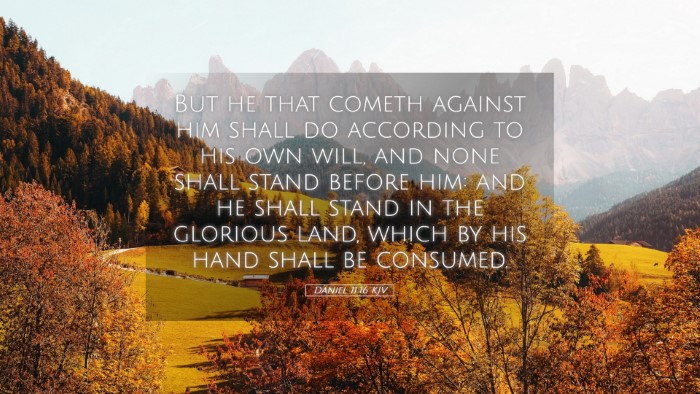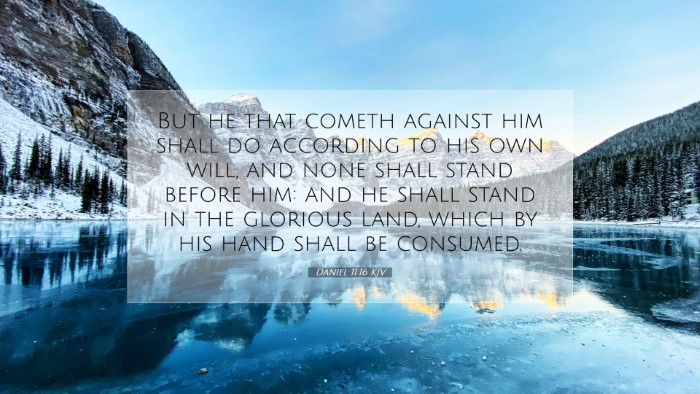Commentary on Daniel 11:16
Biblical Context:
The Book of Daniel presents a prophetic narrative that operates on two levels: the historical and the eschatological. Daniel 11 is particularly significant as it details the conflicts between the kings of the North and South, symbolizing the ongoing struggle between opposing powers throughout the history of Israel and, by extension, the world.
Verse Analysis - Daniel 11:16 (KJV):
"But he that cometh against him shall do according to his own will, and none shall stand before him: and he shall stand in the glorious land, which by his hand shall be consumed."
Exhamination of Key Phrases
- "He that cometh against him": This phrase encapsulates the aggressive forces that rise against established powers, highlighting the theme of conflict that runs throughout the chapter.
- "Shall do according to his own will": This indicates a sovereign action by the aggressor, suggesting a level of autonomy that operates apart from divine restraints.
- "None shall stand before him": This emphasizes the apparent invincibility of the attacking power, highlighting a time of distress for the people of God.
- "Stand in the glorious land": The “glorious land” is often understood as the land of Israel, which is central in God's covenant with His people and in eschatological projections.
- "By his hand shall be consumed": Suggesting impending judgment, this implies that the land itself will suffer destruction due to sin and disobedience, a recurring theme throughout biblical prophecy.
Historical Context
The historical backdrop of this chapter includes the wars between the Ptolemies (the kings of the South) and the Seleucids (the kings of the North) in the intertestamental period. As various nations vied for control of Palestine, God's people were often caught in the crossfire, reflecting the tumultuous political landscape that characterized the region.
Theological Implications
This verse raises significant theological implications concerning divine sovereignty and human agency. The aggressor seems to have free reign, suggesting that, while God is sovereign, He allows certain events to unfold in history that align with His larger redemptive plan.
Contribution of Major Commentators
Matthew Henry
Matthew Henry highlights the sovereignty of God even in the midst of human turmoil. He argues that while the king may act according to his own will, this is still under the sovereignty of God’s overarching plan. Henry points out that the apparent success of the hostile power serves as a sobering reminder of God’s judgment upon His disobedient people.
Albert Barnes
Barnes elaborates on the identity of "he that cometh against him," interpreting it as the Seleucid king, historically fulfilling the prophecy through military engagements in the region. He emphasizes that the "glorious land" represents God's people, who, despite their struggles, remain the focal point of His redemptive history.
Adam Clarke
Clarke offers insight into the socio-political dynamics of the time, underscoring the fate of nations in light of God's covenant with Israel. He interprets the phrase about doing according to his will as indicative of God's allowance for human free will, even amidst turbulent times of conflict and strife. Clarke also notes that the consumption of the glorious land symbolizes both judgment and the potential for renewal through repentance.
Practical Applications
- Understanding Authority: Pastors and theologians can derive insights on how authority is exercised on earth and the need to understand God's sovereign hand even in political turmoil.
- The Role of Israel: Students and scholars should pay close attention to how the text speaks to the continued relevance of Israel in God's plan and the importance of supporting the nation as a focal point for biblical prophecy.
- God's Judgement and Mercy: The dynamic of judgment and grace is significant, prompting reflection on current societal conditions and calling for humble repentance as a community.
- Courage in Crisis: This passage challenges believers to trust in God's sovereignty during times of distress, reinforcing the courage necessary to stand firm in faith despite overwhelming odds.
Conclusion
Daniel 11:16 serves as a powerful reminder of God's sovereignty over history and His particular concern for His people amidst turmoil. Through the insights of biblical commentators, we can grasp the underlying truths that resonate today — that while human rulers may seem to hold all power, it is ultimately God's will that prevails. This verse calls readers to a deeper understanding of the relationship between divine sovereignty and human action, encouraging a faithful response in light of God's ongoing covenant with His people.


